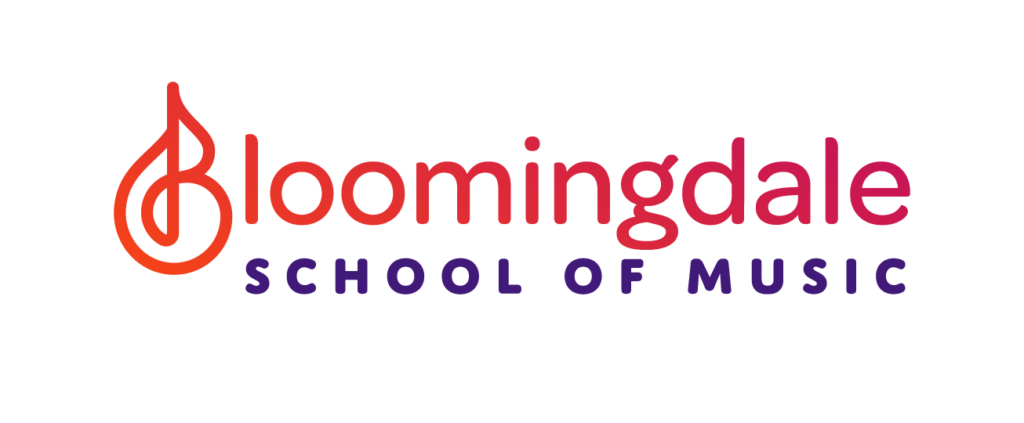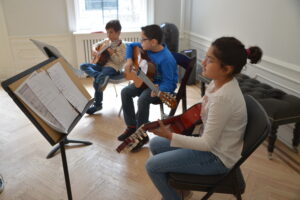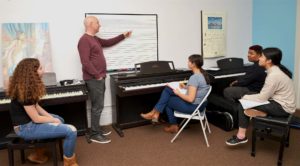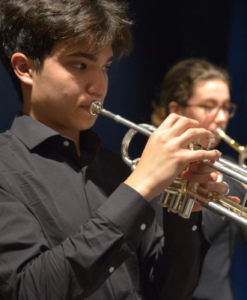Music Theory : A Tool for the Well-Educated Musician by Kevin Krumenauer
Do you ever feel like Music Theory is like learning another language? Well, that’s because it is! Learning music theory is like learning a secret language that can unlock the depths of music. It is a necessary tool in the tool box of the well-educated performer that helps guide musical interpretation and performance.
But… how does it help exactly?
Music theory gives us the tools to correctly read and interpret the instructions of a written musical work, including:
- Musical interpretation
- Learn to play your instrument faster and better
- Better communication between performers and other musical professionals
- Sight-reading new pieces
Musical Interpretation
So, picture this: You’re in your ensemble or group class when you’re playing that solo or jamming with a chamber ensemble. Do you ever find yourself lost or struggling to keep up? Music theory gives you this awesome knowledge of how the music is put together. With the knowledge of music theory, you will learn to understand where you fit into the whole piece, how the music progresses, and where those exciting moments lie. It’s like having a musical roadmap in your hands, guiding you to deliver a performance that truly captivates your audience and gives the music its full glory.
Learn to Play Your Instrument Faster and Better
Imagine you’re tackling a new étude on your instrument, and it has a particularly challenging passage. An understanding of music theory will suggest scales and intervals that can help you break down the passage and be able to navigate it more quickly. Studying scales and intervals gives you the knowledge to be able to navigate the uncertain waters of Music. It also helps you become more familiar with your instrument and what it can do because you are learning the way that music itself is organized and that, in turn, helps you understand how your instrument fits into the broader scope of music itself. Less conscious thinking has to happen on the part of the performer which allows for a greater amount of focus on technique and interpretation when performing.
Develop Sight-Reading Skills
So, sometimes you’re playing an unfamiliar piece of music and you’re trying to figure out the notes and rhythms. Music theory can help you have the tools at your disposal to be able to recognize and navigate those rhythms and notes more quickly. For instance, say you’re in a rehearsal and you have to sight read a piece and you look at the key signature and you say, “Hey, I already know this key and this scale.” That gives you a leg up on all the other people in the ensemble that are reading a piece for the first time, because you already know how the notes are arranged.
Better Communication Among Musicians
Imagine that you were in a rehearsal and you’re working on a piece with three other musicians, and you have an idea about how you want to interpret the piece. It can be difficult to communicate concepts without a shared language. Music theory gives you that shared language. By understanding the common musical terms you will have a library at your command to communicate your thoughts. You will be able to direct the way you want the music to sound and put your personal stamp on the performance. By having a grasp on the underpinnings of music, you are in control of how the piece turns out.
I hope this helps you understand the power of learning music theory and the opportunities it gives you as a musician and I hope to see you in my theory classes at Bloomingdale one day. Happy playing!
–Kevin Krumenauer, Music Theory Coordinator
